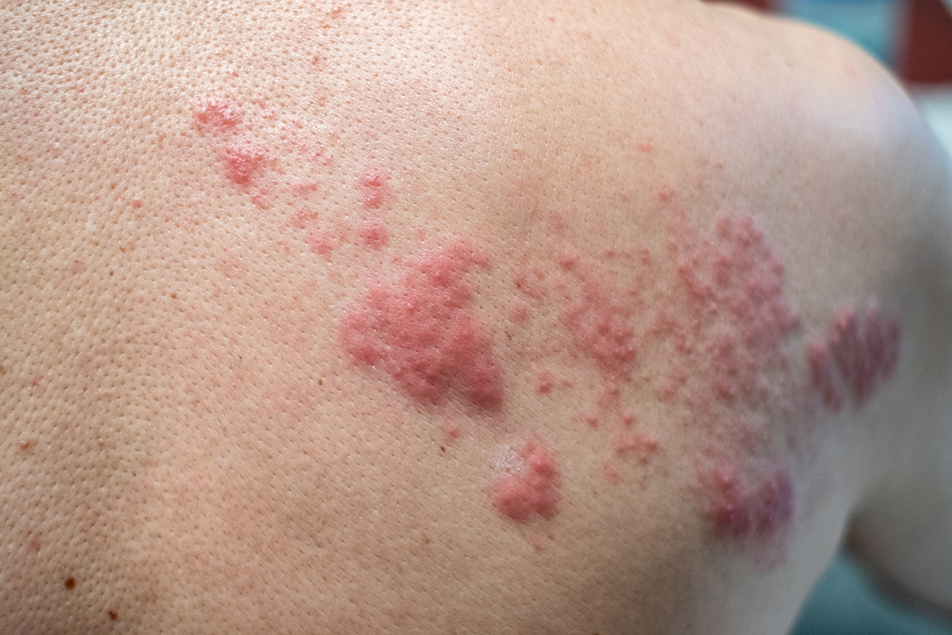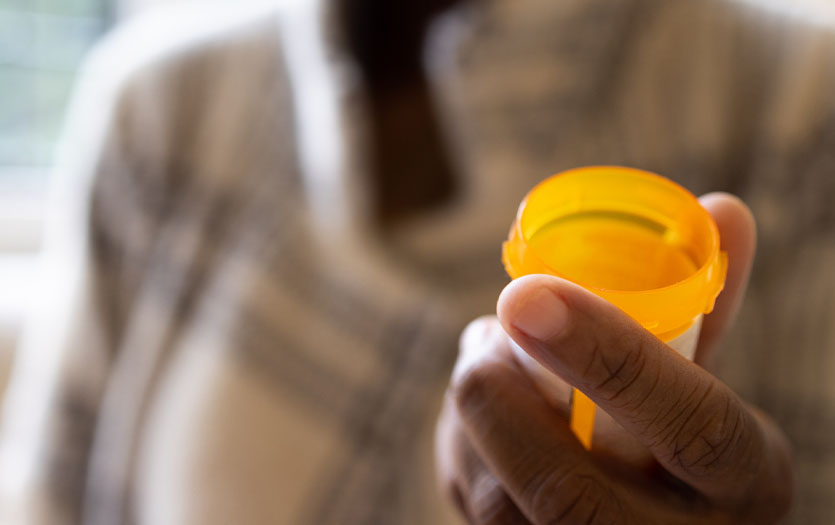
This post was written by Leigh Ann Brooks, RN, BSN, RD, CD, CDE, nursing services operational lead, Diabetes Education Center.
Having diabetes can often feel like a full-time job. There are so many things to think about on a day-to-day basis. Many people don’t realize that diabetes can impact the way their body responds to just about every situation, including other ailments.
Recently, researchers have linked chronic illnesses, like diabetes, with an increased risk of developing shingles. In addition to the increased risk, individuals may find blood sugar difficult to control up to six months after the infection occurs.
Shingles and the chickenpox are caused by the same virus, the varicella zoster virus. If you have had the chickenpox, you are at a higher risk for developing shingles. You can develop diabetes or shingles at any age, but as we grow older, our risk for developing both increases.
In addition, the severity and the pain associated with shingles increases the older we are. Shingles is typically associated with a burning or tingling pain. This pain will often lead to itching and even numbness of the area. After several days, a rash of fluid-filled blisters will develop. These blisters will follow the line of a nerve path. Most commonly, this will occur on one side of the body and wrap around the waist. Shingles however, can occur on other areas of the body as well. Individuals with shingles can also develop headaches and body aches, fever and chills, and occasionally even nausea.
If the shingles are diagnosed early, antiviral medications can be initiated. These medications will not resolve the shingles, but they may decrease the severity, pain and duration of the virus.
If you have diabetes, the best way to treat shingles is to prevent it. The shingles vaccine, Shingrix, can reduce your chance of developing shingles by up to 90%. The vaccine is given in two doses, approximately six months apart. The Centers for Disease Control and Prevention (CDC) recommends that individuals over the age of 50 receive the two-step vaccine. If you are over 50 and have been diagnosed with diabetes, speak to your physician about whether or not you should receive the shingles vaccine. Not only could it prevent this painful condition, but it could also prevent problems controlling your blood sugar for an extended period of time.
Sources
Hieronymus, L. and Boils, B. Understanding Shingles. Diabetes Forecast. July/August 2019.



